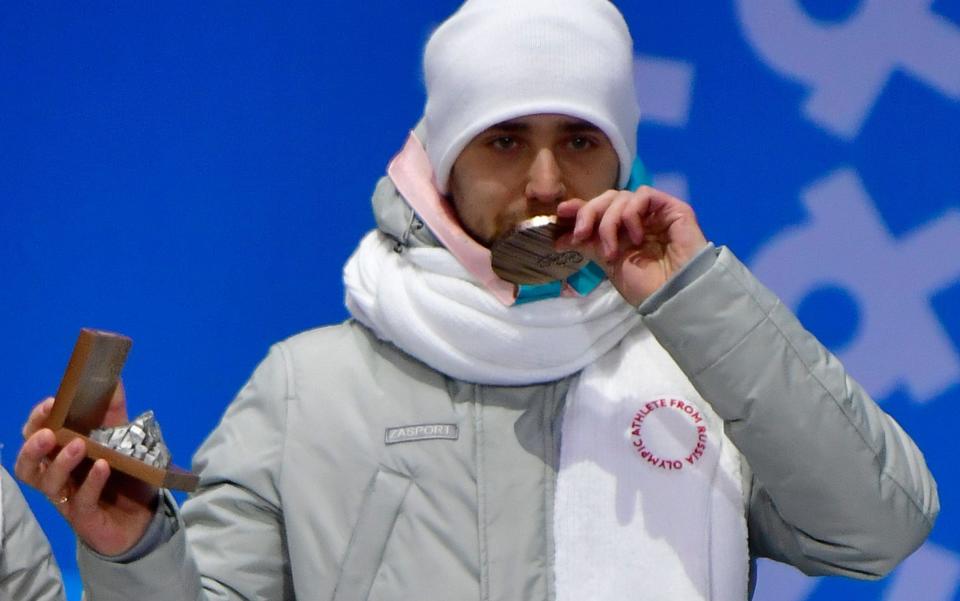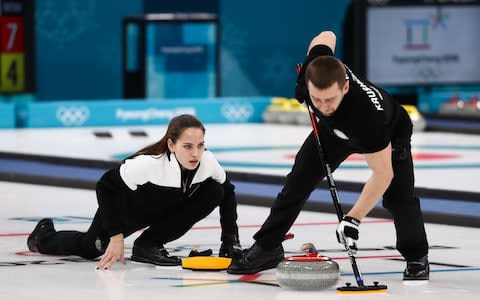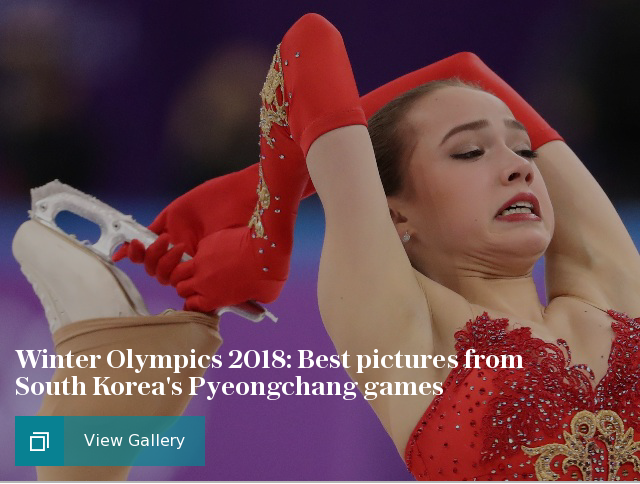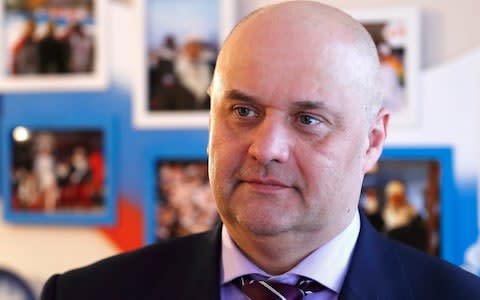Russian curling star stripped of bronze medal for doping - but could this now see his country's Olympic ban lifted?

The strange saga of Russia’s involvement at these Winter Olympics took another twist on Thursday when a Russian curler was stripped of his bronze medal for doping in a move that, bizarrely, may boost the nation’s hopes of having their ban lifted this weekend.
Alexander Krushelnitsky, who was representing Olympic Athletes of Russia (OAR) alongside his wife Anastasia Bryzgalova, finished third in the mixed doubles event only for it to emerge that he had failed a drugs test for meldonium.
Upon learning of the failed test, Krushelnitsky denied taking the drug, which increases blood flow and can boost endurance, claiming that his drink must have been spiked during a training camp in Japan before travelling to South Korea.
The OAR delegation announced a criminal investigation would take place to determine how the positive test happened, but on Thursday they confirmed they had dropped their appeal to the Court of Arbitration for Sport.
It is widely believed that the decision to drop the case was intended to boost Russia’s hopes of marching under their own flag at Sunday’s closing ceremony.

The International Olympic Committee (IOC) announced Russia’s ban from Pyeongchang 2018 in December following a widespread network of systematic doping at the previous Winter Olympics in Sochi.
However, Russian athletes who proved they were not tainted by the doping regime were allowed to compete in South Korea as neutrals, with 168 athletes taking part in a team named OAR. The Olympic flag and Olympic anthem has been played at any medal ceremonies they feature in.
That decision taken in December allowed for the suspension to be lifted at the Pyeongchang 2018 closing ceremony provided the team observed a strict code of conduct during the Games.
While Krushelnitsky’s doping ban may initially appear to have lessened the likelihood of that taking place, Russia’s swift action to return his medal before a sanction had even been issued is thought to have been done to convince the IOC to look favourably on the country.

The IOC's executive board will meet on Saturday to receive a report compiled by a panel specifically established to assess Russia’s adherence to the Pyeongchang 2018 code of conduct. They will then announce a decision on Russia’s suspension prior to Sunday’s closing ceremony.
Thomas Bach, IOC president, had a meeting on Thursday morning with Igor Levitin, a Russian Olympic Committee vice-president and close aide of Russian president Vladimir Putin.
However, the IOC attempted to play down its significance.

“It was four minutes, he wished him 'happy birthday,’” said spokesman Mark Adams.
“He met the Hungarians this morning, he meets 30 or 40 different people, it’s common, it’s normal, we meet all sort of people.
“They may have talked about something else in that four minutes, but I really don’t know.”
Krushelnitsky and Bryzgalova’s bronze medal is now due to be awarded to Norwegian pair Kristin Skaslien and Magnus Nedregotten.

 Yahoo Sport
Yahoo Sport 





































